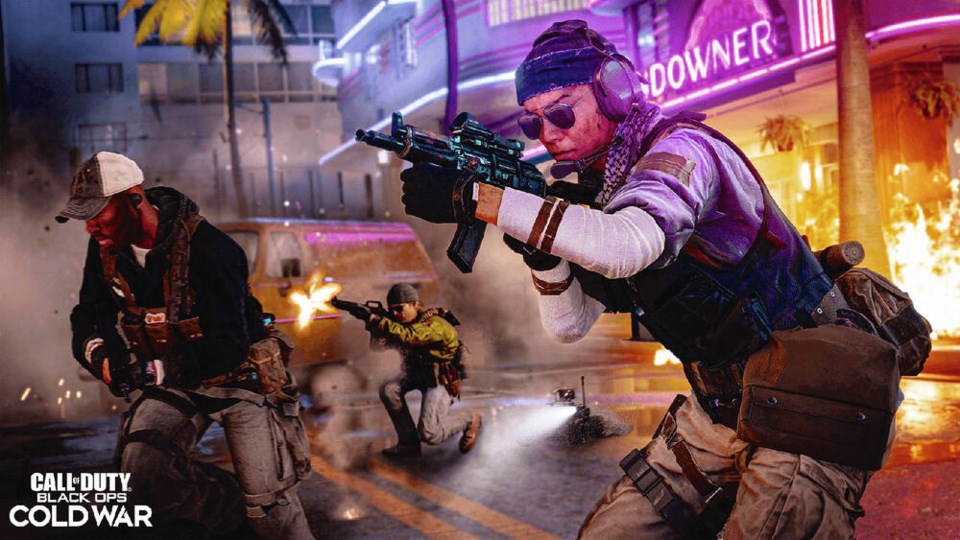Oh no, you’re thinking. That must-have-for-Christmas Nintendo Switch Pro or Sony PlayStation 5 has completely taken over your child’s life since Christmas morning.
He/she surfaces only briefly from Call of Duty: Modern Warfare II or Minecraft or one of the other top-10 video games to eat or attend to other personal matters before returning to the world of battle maps, strongholds and black sites.
Fear not — just be prepared to understand more clearly where all this could be leading.
According to Noah Raford, video games are the platform through which tomorrow’s social connections will be established and, more worrisome, the source of recruitment for some of the most influential social movements of the future.
Who is Noah Raford and what does he know about the impact of video gaming?
Raford is an American “futurist” and specialist in public policy, strategy and emerging technologies. He is a founding executive of the Dubai Future Foundation and the Museum of the Future, and is currently the Futurist-in-Chief and Chief of Global Affairs at the Dubai Future Foundation.
Raford follows futurists such as Marshall McLuhan, Alvin Toffler and Smithsonian Institution curator John Elfreth Watkins.
In 1900, Watkins wrote an article for Ladies’ Home Journal entitled “What May Happen in the Next Hundred Years.”
As with other futurists since then, much of Watkins’ vision of the future has come actually come to pass — wireless phone networks on which a person in New York could talk to either someone across town or in China, live TV images being transmitted around the globe, MRI machines and high-speed trains travelling between cities at 150 miles per hour.
Watkins even predicted the food trucks that have become a fad in cities throughout America.
But back to futurist Noah Raford and his take on the long-term impact of video gaming and bringing up kids in a gaming world.
When it comes to gaming, says Raford, resistance is futile. Games are going to be everywhere.
Billions of people will buy, sell, make and trade virtual goods online.
Gamers will assume roles as characters, follow quests and even get real-world money, not just NFTs, for in-game performance.
People’s entire lives will be built around their characters and their stories, and those stories will come to dominate popular culture and politics.
In a recent TED Talk, Raford pointed out that video games are already the world’s dominant form of entertainment — three times larger than the entire global film and music industries combined.
While parents might be rightly concerned about the influence of war-based games on children, who might perceive virtual worlds as representing the real world, Raford points to more positive games like Druidica, a Minecraft-like nature game designed to help restore damaged ecosystems and preserve Indigenous knowledge.
Or perhaps Walkabout, a survival game for refugees, designed to encourage skill sharing, interdependence and mutual aid linked to scriptural messages of tolerance and compassion.
Then there’s Temple, linked to a network of non-denominational meditation spaces where players can perform co-ordinated acts of care to score on the “good works board.”
Raford suggests that everyone from policymakers to players and game designers and especially the parents of gamers should be talking about what all this means for right now and what’s next.
Media companies, he suggests, should be talking to experts about the dangers of video games being used to foment radicalization, noting virtual reality is already being used by groups like Hezbollah to attract recruits to their cause.
In 2010, Hezbollah developed an online video game app in which players wage war against Hezbollah’s enemies, mainly the Israelis.
Before the game begins, a player takes rounds of target practice against a lineup of well-known Israeli politicians.
The game has been popular among young Lebanese Shi’ites and credited with recruiting new members.
Gaming companies, says Raford, should also be speaking to those who don’t understand gaming dynamics and gaming “communities.”
And finally, says Raford — and perhaps most importantly — parents should be playing video games with their kids to understand the world kids are growing up in, while at the same time having a conversation with them about the role that they might play in it.
Otherwise, as Alvin Toffler, author of Future Shock and The Third Wave predicted: “The future always comes too fast and in the wrong order.”
Geoff Johnson is a former superintendent of schools.
>>> To comment on this article, write a letter to the editor: [email protected]



